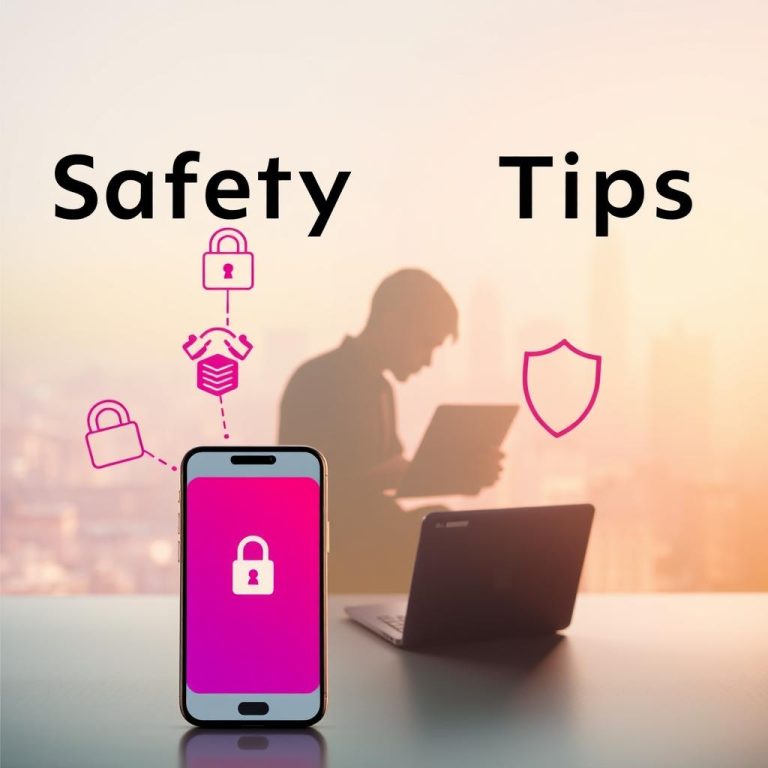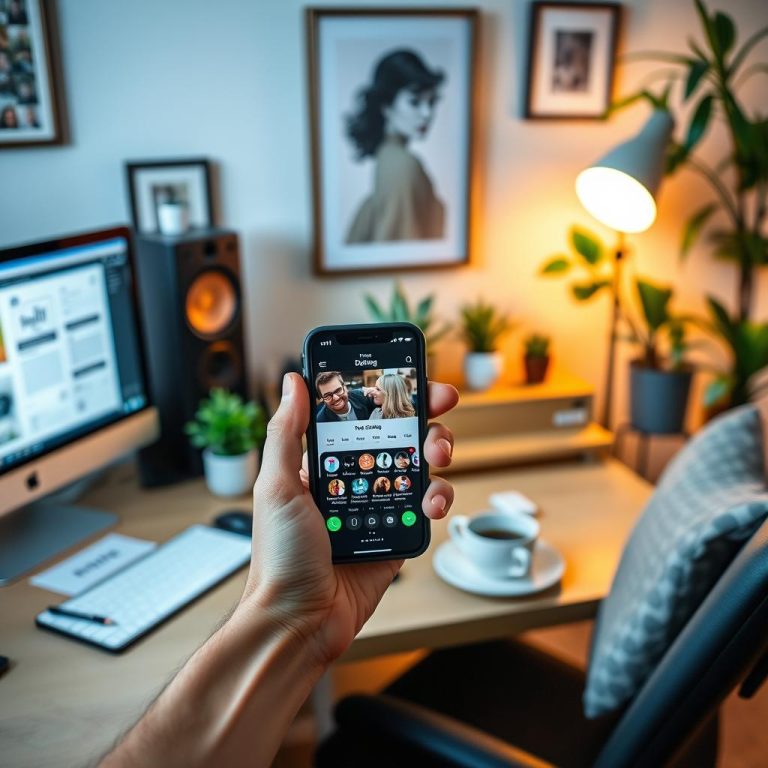The Best Fluffy Pancakes recipe you will fall in love with. Full of tips and tricks to help you make the best pancakes.

In today’s world, ghosting in relationships is a common issue. It leaves deep emotional scars. Knowing why it happens and how to get over it can change how we connect today.
Digital platforms have changed how we relate to each other. It’s now easier for people to vanish without saying a word. This sudden emotional gap can be very hurtful and confusing.
Our guide dives into the complex world of ghosting. It offers insights into its psychological roots and ways to heal. We aim to help you deal with the emotional pain and regain your self-worth after such a tough experience.
Key Takeaways
- Recognize ghosting as a widespread modern dating issue
- Understand the psychological motivations behind ghosting
- Learn effective emotional recovery techniques
- Develop resilience in future relationships
- Prioritize personal emotional well-being
Understanding the Modern Phenomenon of Ghosting
The digital age has changed how we connect and end relationships. It’s key to understand ghosting behavior in today’s world. Ghosting psychology shows how digital platforms have changed how we talk to each other.
Technology lets us connect fast but also makes it easy to cut ties. Social media and messaging apps offer many ways to talk, but they also make real conversations less common.
The Digital Transformation of Relationships
Modern dating and social interactions use new digital tools:
- Instant messaging replaces face-to-face talks
- Dating apps offer endless ways to meet people
- Digital communication lacks accountability
- Online interactions often feel less personal
Defining Contemporary Ghosting
Ghosting is when someone suddenly stops talking without saying why. This has become common in digital dating, showing changes in how we communicate.
Social Disconnection Evolution
The rise of ghosting shows a trend toward less personal responsibility and more freedom. Digital platforms make it easy to disappear from someone’s life by blocking them or ignoring messages.
In a world of endless digital connections, ghosting has become a default escape mechanism for uncomfortable social interactions.
The Psychology Behind Why People Ghost Others

Ghosting is more than just being rude. It’s a complex behavior that stems from deep emotional issues. People ghost to avoid uncomfortable situations or to hide their true feelings.
Several key psychological factors contribute to ghosting tendencies:
- Emotional Avoidance: Many individuals ghost to escape uncomfortable confrontations or difficult conversations
- Fear of Vulnerability: Some people struggle with expressing genuine emotions and find disconnection easier
- Low Emotional Intelligence: Limited communication skills can lead to sudden relationship terminations
Ghosting psychology shows that digital platforms make it easy to cut ties without explanation. The anonymity of online interactions makes it simpler to disappear without a word.
Research finds that personal insecurities often lead to ghosting. People might ghost when:
- They feel overwhelmed by emotional expectations
- Experience past relationship traumas
- Lack mature conflict resolution skills
Knowing why people ghost doesn’t justify their actions. It helps us understand and empathize with their struggles. This knowledge can lead to better relationships and communication.
Common Scenarios Where Ghosting Typically Occurs
Ghosting in relationships is a common issue that happens in many areas. Knowing these situations can help people understand and spot ghosting patterns.

Ghosting isn’t just about dating. It affects many social connections, causing emotional pain for those left in the dark.
Dating App Disappearances
Dating apps have made ghosting more common. People often stop talking after a few chats or dates. This digital disconnection can make others feel confused and rejected.
- Sudden message silence after multiple interactions
- Unmatching without explanation
- Ignoring direct communication attempts
Long-term Relationship Ghosting
Ghosting in long-term relationships is even harder to deal with. It can lead to deep emotional pain when someone suddenly stops showing support.
| Relationship Duration | Ghosting Likelihood | Emotional Impact |
|---|---|---|
| 1-3 months | Moderate | Mild confusion |
| 6-12 months | High | Significant emotional hurt |
| 1-3 years | Very High | Severe psychological trauma |
Friendship and Professional Ghosting
Ghosting isn’t just for dating. It also happens in friendships and work, where people suddenly stop talking without saying why.
- Work collaboration abandonment
- Friendship drift without confrontation
- Networking connection termination
Emotional Impact of Being Ghosted
Ghosting can start a deep emotional journey. It makes people feel rejected and confused. This experience can hurt their self-worth and how they see relationships.
When someone vanishes without saying a word, it’s very hard to deal with. The feelings that come after ghosting are complex:
- Intense feelings of self-doubt
- Unexplained anxiety about personal worth
- Sudden loss of emotional connection
- Overwhelming sense of abandonment
“Ghosting is a silent form of emotional abandonment that can shake the foundations of one’s self-esteem.”
The effects on your mind depend on the relationship’s depth. Understanding the emotional side of ghosting helps you heal. It builds emotional strength and better ways to cope.
| Emotional Response | Potential Impact |
|---|---|
| Shock | Initial disbelief and confusion |
| Anger | Feelings of betrayal and resentment |
| Self-Reflection | Questioning personal worth and behaviors |
Knowing that ghosting reveals more about the ghoster than the ghosted is key to healing. Recovery takes time, kindness to yourself, and a focus on personal growth.
Why Ghosting Happens & How to Move On from It
Dealing with the feelings after being ghosted can be tough. It’s important to know why it happens and how to move on. Moving on after ghosting means being kind to yourself and understanding relationships better.

Ghosting can hurt a lot, so it’s key to understand it and find ways to heal. Let’s look at the main points of dealing with this tough situation.
Identifying Root Causes
Knowing why ghosting happens involves looking at a few reasons:
- Fear of confrontation
- Emotional immaturity
- Avoidance of uncomfortable conversations
- Personal unresolved psychological issues
Understanding Your Emotional Response
Your feelings after being ghosted are real and complex. Emotional responses can range from confusion and hurt to anger and self-doubt. It’s important to acknowledge these feelings to start healing and moving on.
Developing Coping Strategies
Good ways to move on after ghosting include:
- Practice self-compassion
- Seek support from friends and family
- Engage in personal growth activities
- Prioritize mental health and well-being
Remember, ghosting is more about the person who left than your worth. By understanding the situation and focusing on healing, you can turn this hard time into a chance for growth and learning about yourself.
Recognizing Red Flags Before Ghosting Occurs

Understanding ghosting behavior means watching for early signs. How people communicate can show if they might ghost you before you get too attached.
When dealing with ghosting, spotting red flags is key. Certain signs suggest someone might ghost you without explanation:
- Inconsistent communication patterns – Sporadic responses or sudden drops in talking
- Avoiding deep or meaningful conversations
- Minimal emotional vulnerability or sharing
- Frequent rescheduling or canceling plans
- Vague commitments about future interactions
Ghosting often starts with emotional unavailability. People who find it hard to talk openly might ghost instead of facing the issue.
Look out for small signs that might mean someone is likely to ghost you:
- Decreased texting frequency
- Limited personal information sharing
- Reluctance to define relationship status
- Maintaining significant emotional distance
Being proactive can protect your emotional health. Spotting these signs early lets you make better choices about your relationships and emotional investments.
Healthy Ways to Process Ghosting Trauma
Ghosting can leave deep emotional scars. Healing from ghosting trauma needs patience, self-compassion, and emotional recovery strategies.
Being ghosted can feel overwhelming. But, there are tips to help you heal and regain your strength.
Self-Care Practices to Heal
- Practice daily mindfulness meditation
- Journal your emotions and experiences
- Engage in regular physical exercise
- Create a supportive social network
- Limit social media exposure
Professional Support Options
| Support Type | Benefits | Recommended For |
|---|---|---|
| Individual Therapy | Personalized emotional processing | Deep emotional wounds |
| Group Counseling | Shared experiences and validation | Community support |
| Cognitive Behavioral Therapy | Restructuring negative thought patterns | Recurring relationship challenges |
Building Emotional Resilience
Building emotional resilience is key to overcoming ghosting trauma. Learn to recognize your worth independent of others’ actions. Focus on personal growth, set healthy boundaries, and cultivate self-love through positive practices.
“Healing is not linear, but it is possible with intentional self-care and support.”
Remember, ghosting recovery is a personal journey. Each step you take towards healing strengthens your emotional landscape and prepares you for healthier future relationships.
Rebuilding Self-Esteem After Being Ghosted
Ghosting can really hurt your self-esteem. It feels like a sudden cut-off, making you doubt your worth. Remember, being ghosted doesn’t mean you’re not valuable.
Starting to heal involves recognizing your worth. Your identity is not defined by someone else’s inability to communicate. It’s important to take time to feel your emotions and be kind to yourself.
- Practice positive self-talk and affirmations
- Engage in activities that boost your confidence
- Surround yourself with supportive friends and family
- Explore personal growth opportunities
Building back your self-esteem takes work. Here are some steps to help:
- Seek professional counseling if needed
- Journal your feelings and experiences
- Develop new skills or hobbies
- Create a self-care routine that prioritizes your emotional well-being
Ghosting reveals more about the ghoster than you. Your worth isn’t based on someone’s communication skills. Focus on growing, loving yourself, and making connections that value you for who you are.
“Your value doesn’t decrease based on someone’s inability to see your worth.”
Healing from ghosting is a personal journey. Be kind to yourself as you work through your feelings and find your inner strength again.
Setting Boundaries in Future Relationships
After ghosting, setting clear boundaries is key for healing and success in future relationships. It’s about protecting your feelings and building better connections.
Starting new relationships means knowing yourself and talking openly. Setting boundaries stops ghosting and builds respect.
Communication Guidelines
- Be clear about what you expect right away
- Tell others how you like to communicate
- Talk about how you both like to communicate early
- State your boundaries without feeling bad
Personal Values Assessment
| Personal Value | Relationship Impact |
|---|---|
| Respect | Ensures mutual understanding |
| Honesty | Prevents ghosting |
| Communication | Builds trust and connection |
Maintaining Self-Respect
Self-respect means knowing your worth and not accepting disrespect. Ghosting doesn’t show your worth. It’s a chance to stand up for yourself.
- Spot red flags early
- Listen to your gut
- Put your emotional health first
- Leave if a relationship doesn’t make you happy
“Boundaries are not walls. They are guidelines that help you respect yourself and others.”
Alternative Ways to End Relationships Respectfully
Ending a relationship can be tough, but learning to communicate better is key. Talking openly and kindly is a more grown-up way to say goodbye. This way, both people can keep their dignity and feel okay emotionally.
Clear talk is essential when ending things. Plan a face-to-face or video call to share real feelings. Explain why you want to end it without being mean or blaming. It’s important to treat everyone with respect during tough times.
Being open about your feelings, listening to the other side, and setting clear limits are good steps. Don’t say things that might give false hope. Instead, be clear and kind. This helps both people understand and deal with the end better.
Learning to end relationships with kindness takes time and effort. Choosing empathy and clear talk over ghosting helps us grow. It shows we value our own and others’ feelings, making future connections healthier.



